 TOM GOMEZ
.
March 14, 2023
.
All Feature Vehicles
TOM GOMEZ
.
March 14, 2023
.
All Feature Vehicles
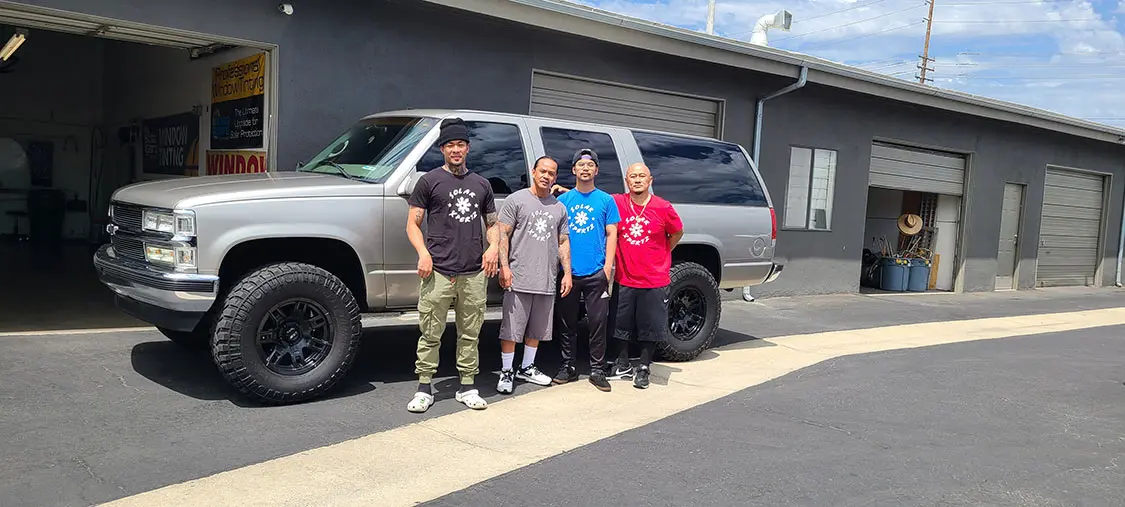
Relentless UV rays from the sun punish the interior of your vehicle and your skin. One solution to reduce harmful exposure is tinted windows.
So, what is the real story on automotive window tint legalities? Well, it depends on who you ask and what State you live in. As you’ll see, they vary wildly.
We’re using an OBS (Old Body Style) Suburban because of the number of large windows letting in damaging rays, and it will serve as a good example of how to cut down on the interior heat. The Suburban has factory tint on the back door windows, the huge rearward side windows, and rear cargo doors. The two front side windows have tint that is dark – but not dark enough.
We contacted Robert Callo, owner of Solar Xpertz in Ventura, California, and asked him for advice. The crew at Solar Xpertz would then install the type that would work best for us. Robert had lots of good information. He helped us understand the different options and the solutions each of the various tints offers.
Window tint can add aesthetic value to your car, reduce glare, and reduce the heat and UV rays of the sun. Tinting windows will also help to protect the interior of the car and its contents.
UV rays are harmful to your vehicle’s interior and also to your skin. Tinting the windows reduces the chance of you getting long-term exposure which we all know is not good.
Some have argued that having “limo” tint is prescribed for their skin for health reasons. Some law enforcement say “Hogwash. Where’s your doctor’s note”. We don’t think that happens much anymore, especially here in California, but if you live in a State where not many people have tinted windows you might be pulled over.
To check your State’s laws, we’ve included a State-by-State chart of the current tint laws at the end of this article.
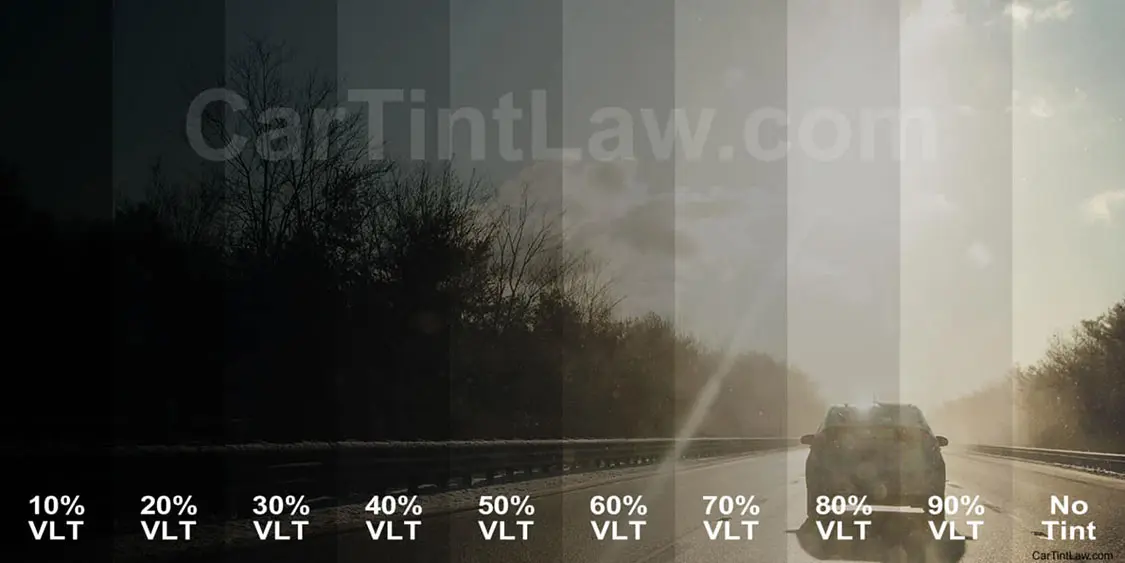
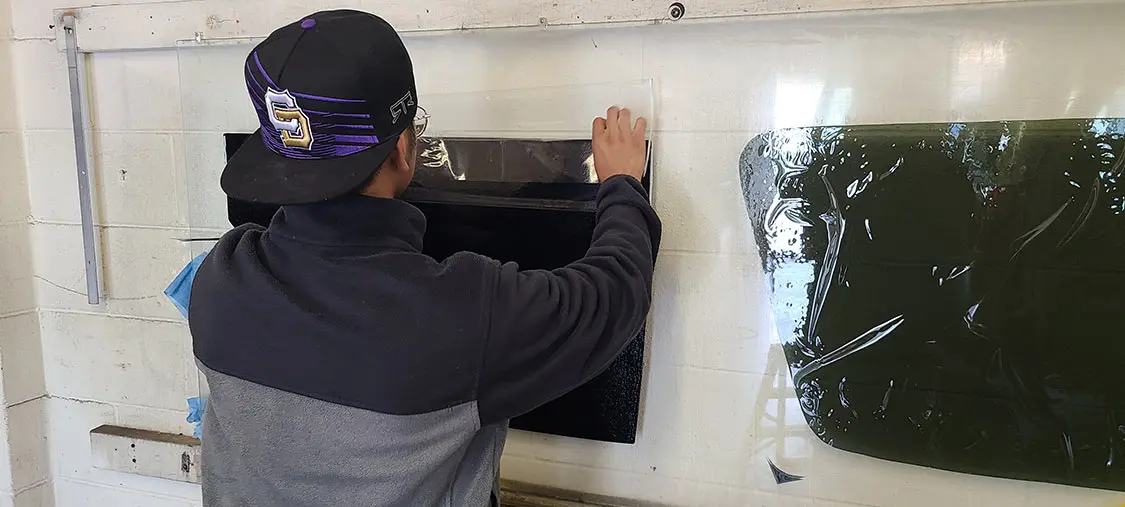
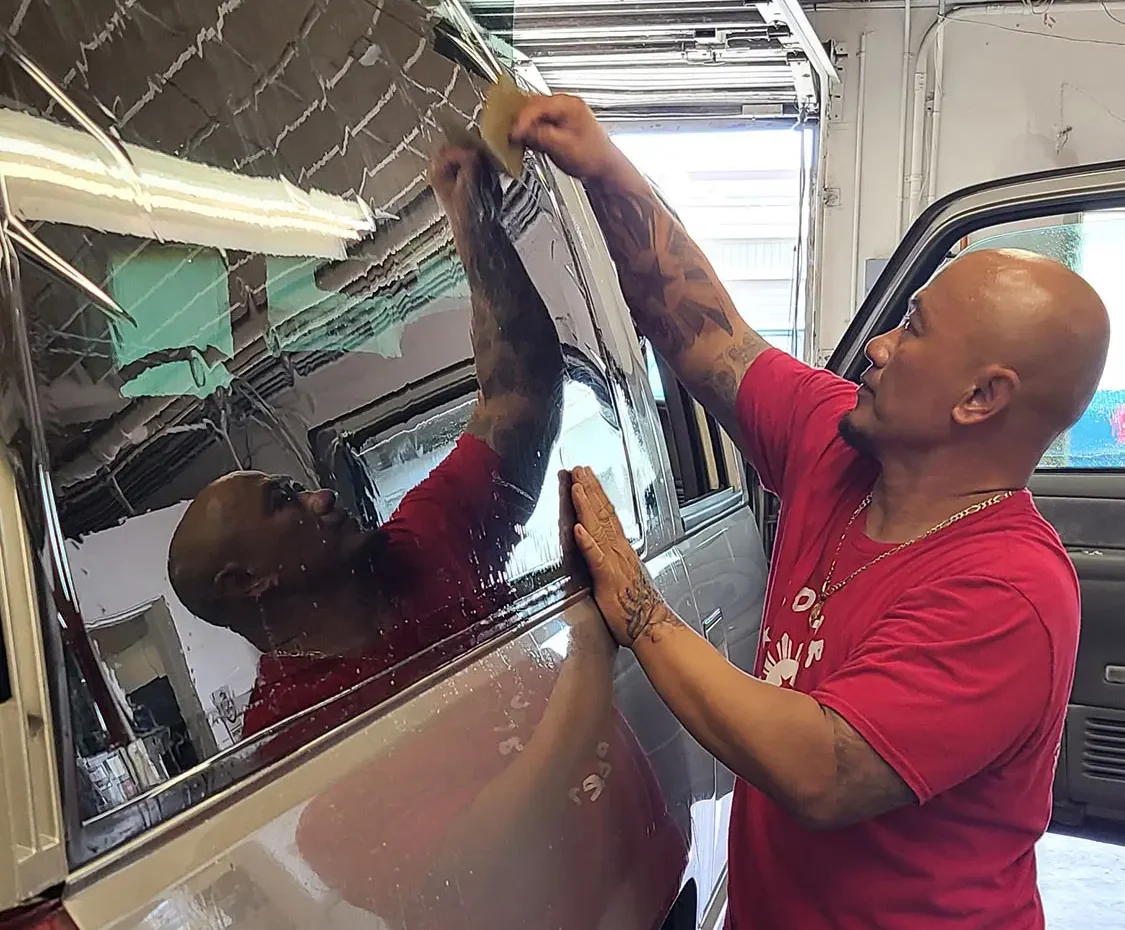
One of the potential drawbacks is if visibility is reduced too much when the tint is too dark. During sunny days, dark tint is freaking awesome. But at night it can be pretty hard to see through limo-style tint and is potentially dangerous.
Another drawback is that law enforcement can’t see inside your car. We know this is a concern of theirs because that’s what they told us.
We’re not here to dictate your actions during a traffic stop, but we tend to roll all the windows down before the officer approaches our vehicle. We’ve noticed that their attitude toward us is more friendly and they want to talk about the car or truck we’re driving. Then they say “Have a good day” and we say “Whew” and slowly drive away with our blinker on.


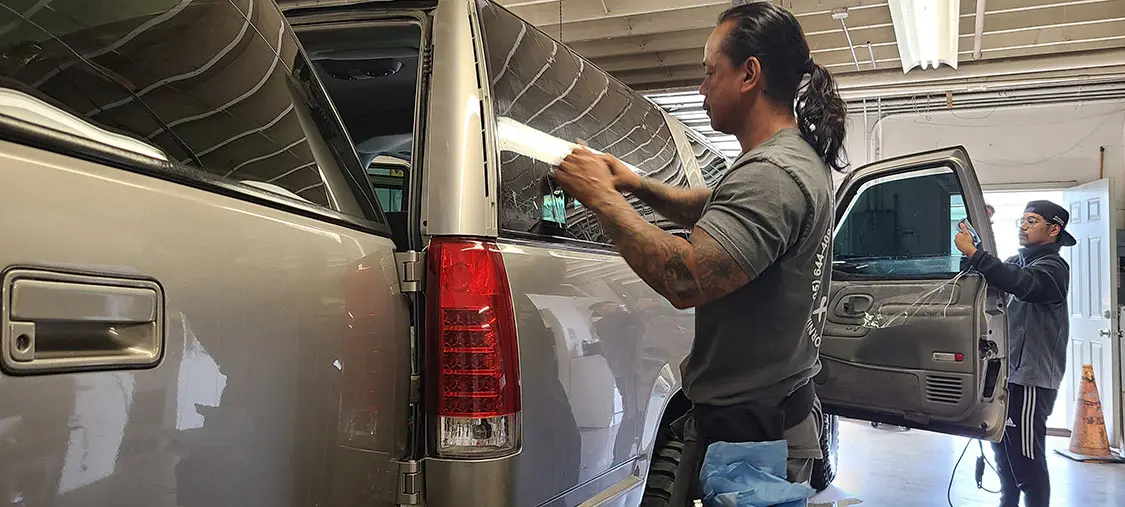
California may have high gas prices and restrictive emissions laws but the State understands we have sunny weather about 98% of the time year-round and that generates a lot of heat.
California allows 70% on the front side windows which translates to 30% VLT. The rear can be factory tinted or darker. We opted for darker.
Almost every car in California has window tint, even some cop cars. Police officers also get sun exposure driving around all day trying to maintain order, so it’s kind of a mutual understanding.
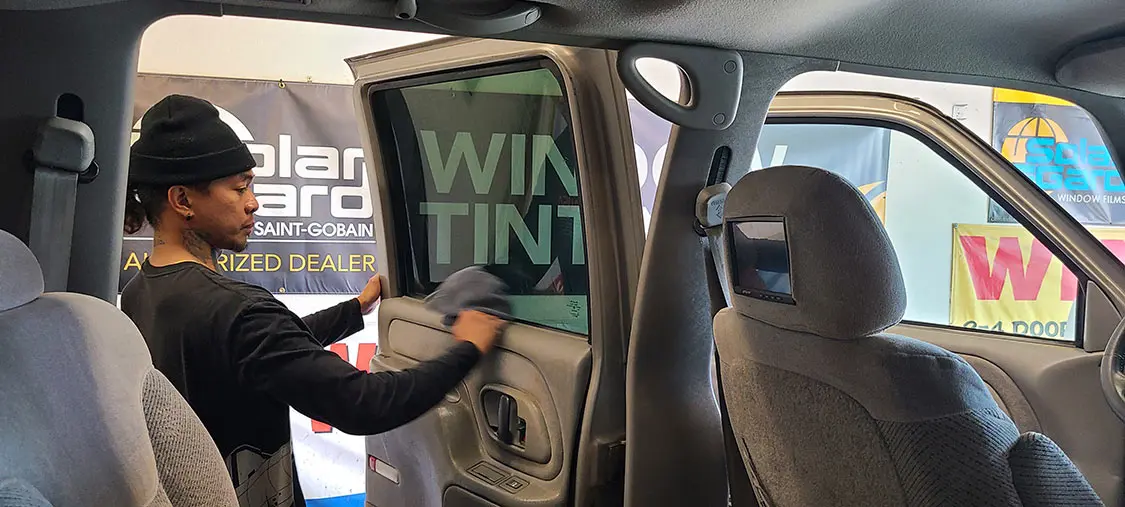
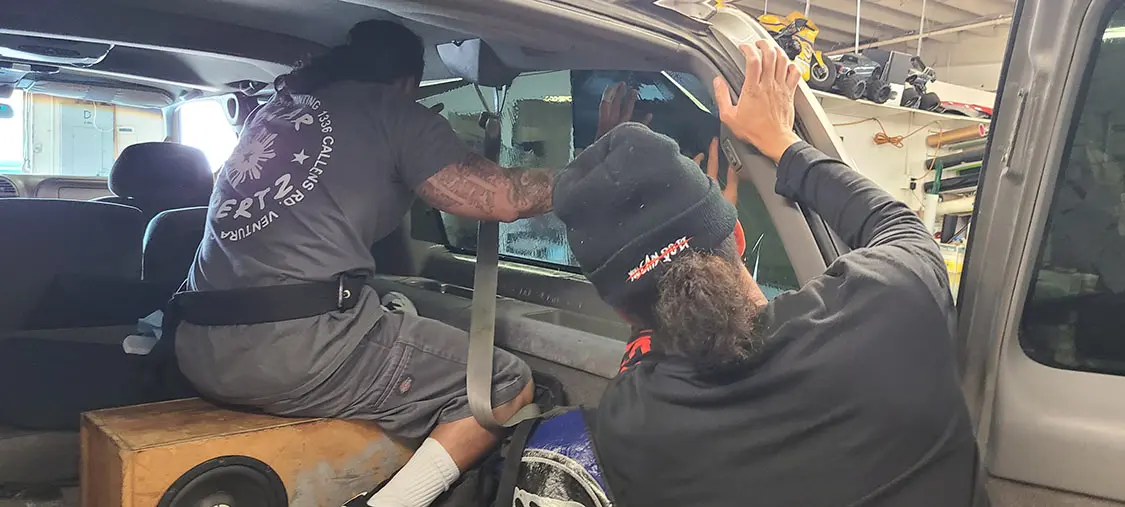
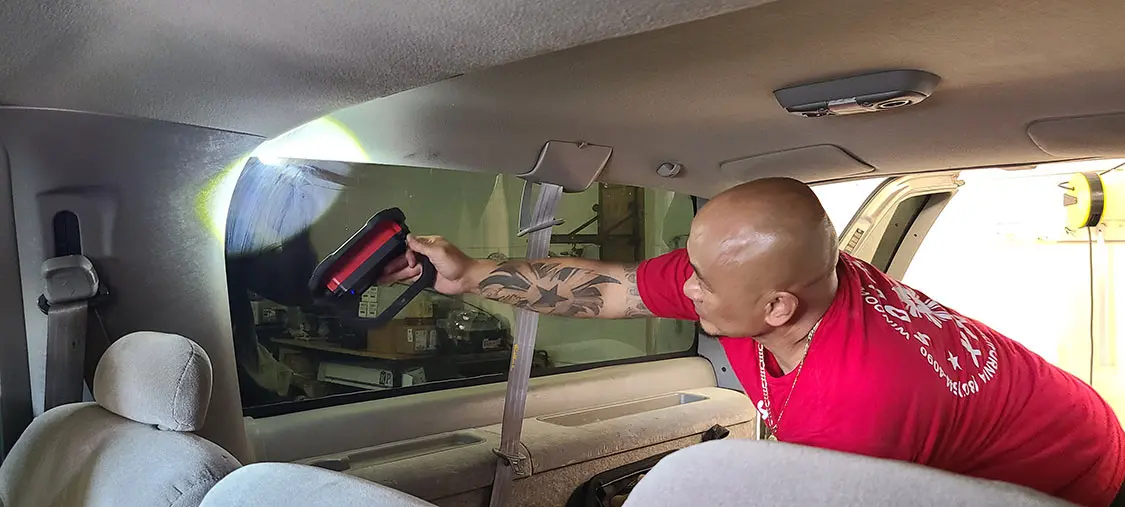
The result for us was that after the install the inside of the Suburban is dramatically cooler with and without running the air conditioning. The’Burb’s look is now cooler too!
There are a number of tint material choices as well as darknesses to consider so talk with a pro installer with experience so you end up with the results you expect. Do your research, and ask friends about their choices and experiences. It’s worth the time.
Remember that window tint percentages refer to the amount of light that is allowed in. This is known as the Visible Light Transmission (VLT) percent. Windshield tinting laws refer to the amount of the windshield that can be legally tinted or the amount of tint allowed on the entire windshield depending on each state’s regulations. Check out the chart on the following page.
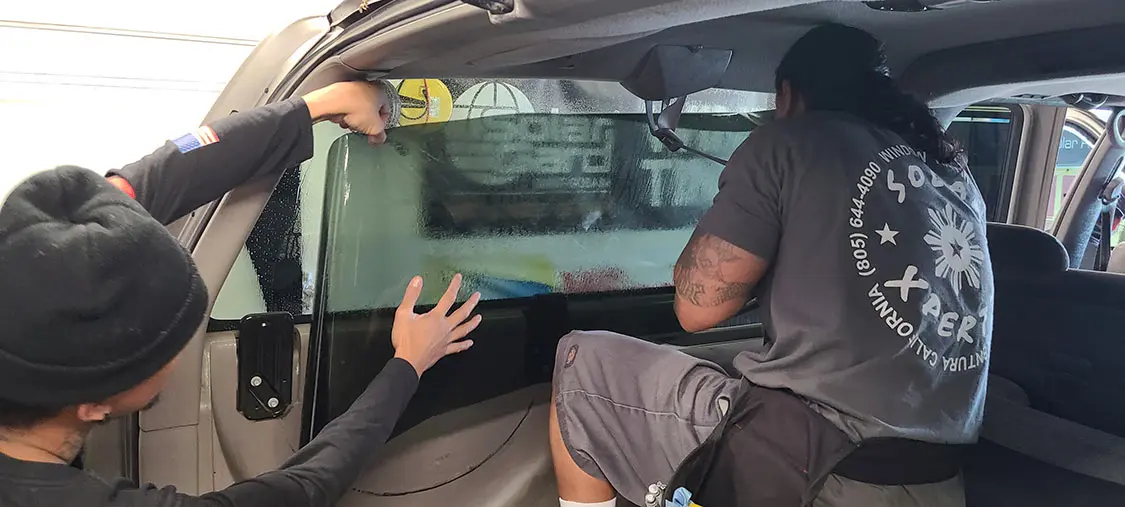

SOLAR XPERTZ
1336 CALLENS RD.
VENTURA CA. 93003
805-644-4090
We use cookies to enhance your browsing experience, serve personalized ads or content, and analyze our traffic. By clicking "Accept All", you consent to our use of cookies. Visit our Cookie Policy for more info.
Notifications
Share Link